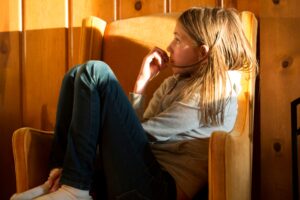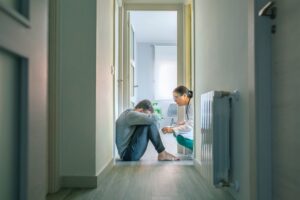
Why Families in Mexico Benefit from Residential Family Therapy
Many families in Mexico are choosing The Wave Clinic for residential mental health support for a young person. The Wave’s residential programs combine exceptional clinical
Fiona Yassin is the International Program Director at The Wave, holding multiple credentials including being a registered Psychotherapist and Accredited Clinical Supervisor in both the U.K. and UNCG (Registration number #361609 National and International Council of Psychotherapists). She is EMDR trained (EMDRIA) and practices as a Trauma therapist (Registration number #10000054651).
Fiona’s expertise includes being a member of the International Chapter of IAEDP, with training in CBTe (Oxford Group), FREED (King’s College, London), TF-CBT, RO-DBT, and GPM. Her specializations cover the treatment of Eating Disorders and Borderline Personality Disorder, as well as families in High Conflict Divorces and Psychiatry across the female lifespan.
Additionally, Fiona holds the distinction of being a Fellow of APPCH, a senior accredited Addiction Professional, and a member of The Association of Child Protection Professionals. She is also trained in MBT (Child and Family and Adult) and Reflective Parenting with The Anna Freud Centre for Children and Families, and is a Member of The Australia and New Zealand Eating Disorders Association.
Fiona holds an MSc in Neuroscience and Mental Health awarded by King’s College London, where she received The Dean’s Award. She is currently completing an MSc in Psychiatry at Cardiff University Medical School and is a PhD Candidate in Mental Health Research at Lancaster University. Outside of her professional pursuits, she enjoys spending time with her three cats, going for long walks on the beach, and appreciating the beautiful animals in her garden.

Many families in Mexico are choosing The Wave Clinic for residential mental health support for a young person. The Wave’s residential programs combine exceptional clinical

Families are like systems of close relationships that develop, change, and affect one another. This means that the behaviours of one family member affect all

Therapeutic boarding schools offer young people the opportunity to continue their education while receiving a greater level of mental health support. They provide a safe and structured environment that combines professional psychological support with collective living, learning, and personal growth.

If you know a young person living with BPD, it’s important to find effective and specialist treatment. While this can take some time, it can make a huge difference in the life of a young person and their family. Living with BPD is really hard, but with the right support, young people can recover.

Research from Mexico exploring the link between eating disorders and socioeconomic status shows mixed results. While some studies have found no significant link, other research suggests that eating disorders are more common among young people from households with higher economic status. One study found that:

When a young person is self-harming, it’s normal for parents to be unsure what to do. But the most important thing to remember is that self-harm always requires support from a mental health professional. Regardless of the way a young person is self-harming, their communication, or your own emotions, you should seek professional help.

Self-harming behaviours are common among adolescents, and particularly teenage girls. Self-harm is usually a way to try and manage intense and distressing feelings that can feel too much for a young person to handle. Self-harm should always be taken seriously and never minimised as a ‘phase’ or ‘attention-seeking’.

Many young people experience grief before they reach adulthood. Grief isn’t a mental health condition; it’s a normal response to loss that most people will

Mental health concerns are common among young people living in Dubai and the rest of the UAE. Adolescents and young adults may experience a range of mental health disorders, including anxiety disorders, eating disorders, and depression. These conditions affect their well-being, quality of life, and future mental health.

IOPs provide opportunities for focused and comprehensive support that addresses the underlying causes of eating disorders. Young people in IOPs have the space and time to work through the multiple aspects of eating disorders, carefully navigating their complexities. Outside of sessions, they can practice and generalise skills they learn in their daily lives.

Mental health disorders like anorexia nervosa and borderline personality disorder are common among young people in Kuwait. For parents, seeing a young person face challenges in their mental health can cause stress, anxiety, sadness, and frustration. It’s not easy to know how to act or when to reach out for support.

Identifying and treating anorexia as soon as possible is crucial to effective treatment and recovery. Without timely treatment, children can experience serious and long-term harm to their mental and physical health. This means that it’s really important to look out for the signs of anorexia in pre-teens as well as adolescents and seek professional support if there are any concerns.

Social isolation and loneliness may cause young people to become more inward-focused and preoccupied with their body shape and weight. Meaningful social relationships are important in creating a sense of perspective and self-worth. Relationships help young people understand the many ways they are valuable and emphasise their hobbies and passions. Without these relationships, it’s easier for disordered eating attitudes and behaviours to dominate a young person’s life.








Have any questions or want to get started with the admissions process? Fill in the form below and we’ll get back to you as soon as possible.